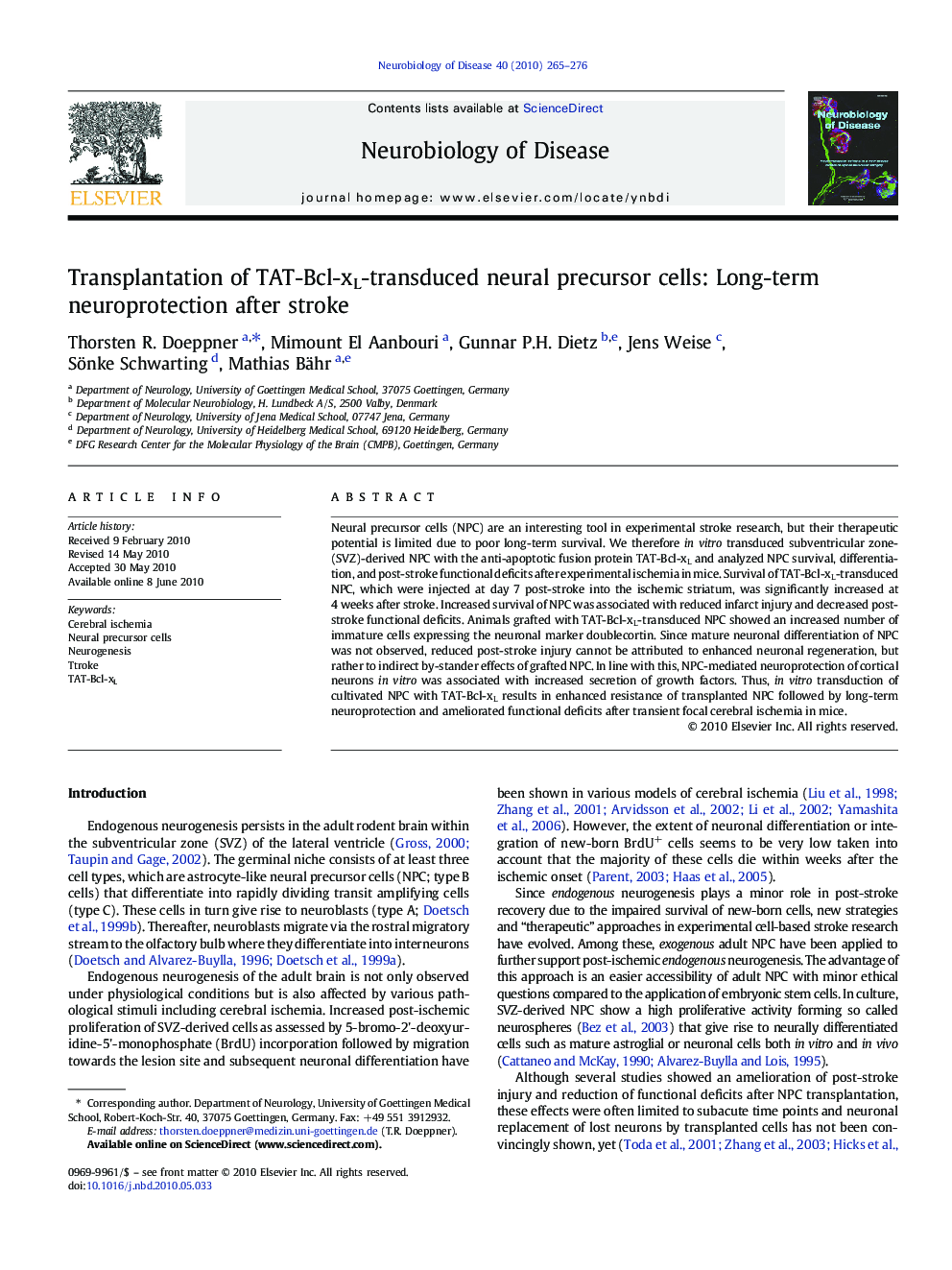| Article ID | Journal | Published Year | Pages | File Type |
|---|---|---|---|---|
| 3069850 | Neurobiology of Disease | 2010 | 12 Pages |
Neural precursor cells (NPC) are an interesting tool in experimental stroke research, but their therapeutic potential is limited due to poor long-term survival. We therefore in vitro transduced subventricular zone-(SVZ)-derived NPC with the anti-apoptotic fusion protein TAT-Bcl-xL and analyzed NPC survival, differentiation, and post-stroke functional deficits after experimental ischemia in mice. Survival of TAT-Bcl-xL-transduced NPC, which were injected at day 7 post-stroke into the ischemic striatum, was significantly increased at 4 weeks after stroke. Increased survival of NPC was associated with reduced infarct injury and decreased post-stroke functional deficits. Animals grafted with TAT-Bcl-xL-transduced NPC showed an increased number of immature cells expressing the neuronal marker doublecortin. Since mature neuronal differentiation of NPC was not observed, reduced post-stroke injury cannot be attributed to enhanced neuronal regeneration, but rather to indirect by-stander effects of grafted NPC. In line with this, NPC-mediated neuroprotection of cortical neurons in vitro was associated with increased secretion of growth factors. Thus, in vitro transduction of cultivated NPC with TAT-Bcl-xL results in enhanced resistance of transplanted NPC followed by long-term neuroprotection and ameliorated functional deficits after transient focal cerebral ischemia in mice.
